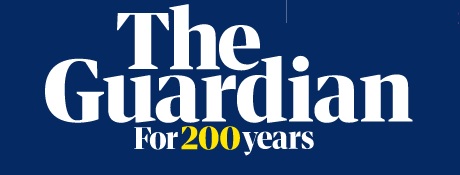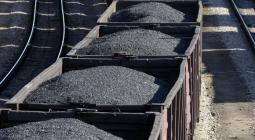Greta Thunberg condemns UK firm’s plans for iron mine on Sami land

Beowulf Mining ‘hopeful’ for decision on mine in Sápmi despite opposition from activist, UN and Swedish church
A British company has fallen foul of Greta Thunberg, Unesco, Sweden’s national church, and the indigenous people in the north of the country over plans for an open-pit mine on historical Sami reindeer-herding lands.
The clamour of opposition was voiced as Beowulf Mining, headquartered in the City of London, suggested it was “hopeful” of a decision within weeks of a 5 sq mile iron-ore mine in an area where Sami communities have lived for thousands of years.
The company’s share price has been on a sharp upward trajectory since December when the Swedish Greens, who have opposed the plans, left the governing coalition and the Social Democratic business minister, Karl-Petter Thorwaldsson, declared that his party “loved mines” and hoped to open more.
But the proposed Gállok site, located 28 miles (45km) outside the town of Jokkmokk in the county of Norrbotten in Swedish Sápmi, commonly known as Lappland, has become a symbol of what has been condemned as a callous and unlawful disregard for the protected status of Sami culture by big business and government.
The Sami parliament, the representative body for people of indigenous heritage in Sweden, has in recent days written to the Swedish government warning that the mine will destroy grazing areas and cut off the only viable migratory route for reindeer followed by the Jåhkågasska Sami community, who move westerly with their animals to the high hills of the Laponian area on the Norwegian border for the animals to calve during the spring.
Sami communities to the west and east of the mine would also be hit through a reduction in viable grazing areas already under pressure from changes to the snow conditions attributed to the climate emergency, logging, power lines and the development of a hydroelectric dam, the parliament said.
Unesco, the UN’s cultural protection wing, has warned of a potentially “large, very large” impact on the Laponian area, the mountainous world heritage site 21 miles west of the mine, counselling the Swedish government to undertake a more “in depth” assessment.
The archbishop of Uppsala, Antje Jackelén, who heads the Church of Sweden, has written an open letter to the Swedish prime minister, saying the proposed mine “is not existentially and spiritually sustainable”.
Thunberg, speaking to the Guardian during a visit to the Gállok site, said the government’s decision would be pivotal to Sweden’s future reputation. “The world’s eyes are on the Swedish government,” she said. “The profit that will be made from this mine will go to the British company not the local people who will have to pay for the long-term costs: the polluted air, water, lost biodiversity and lost traditions.
“Of course we need local jobs, but it cannot be at the expense of the climate, environment, indigenous rights. The Sami villages affected by this mine have clearly said, ‘No.’ A no is no and we need to respect that.”
Thunberg added: “Sweden’s government usually pretends it is a progressive country when it comes to human rights and when it comes to the climate and environment.
“We usually call ourselves pioneers and climate leaders but when you see what is happening here it is the exact opposite. It is a textbook example that we still have not come to terms with history and that we are continuing in the same way we have always done, there are no signs of us backing down.
“It is just more and more of the idea that we can exploit other people, that we can exploit nature, and that needs to be brought to an end.”
Thunberg’s comments were echoed in a joint statement on Thursday by Francisco Calí Tzay, the UN’s special rapporteur on the rights of indigenous peoples, and David R Boyd, the body’s special rapporteur on human rights and the environment.
“We are very concerned by the lack of good-faith consultations and the failure to obtain the free, prior and informed consent of the Sami, and over the significant and irreversible risks that the Gállok project poses to Sami lands, resources, culture and livelihoods,” they said. “There has been insufficient assessment and recognition of the environmental damage the mine will cause.”
Beowulf has been seeking approval for the mine since April 2013 but has consistently faced steep opposition in the Sami community, only strengthened by public relations missteps.
In 2014, the former chairman Clive Sinclair-Poulton was filmed in a boardroom with a photograph of the site, telling investors: “One of the major questions I get is what are the local people going to go ahead and say about this project. And I show them this picture and I say, what local people?”
A year later, when asked whether it would be difficult for the Sami to successfully oppose the proposed mine, Sven-Erik Österberg, the county governor in Norrbotten, told a documentary-maker: “Of course there is a lot of money in the area and, you know, money talks.”
Despite this, Alice Bah Kuhnke, a former minister for culture, who is now a Green MEP, said her party had to make sacrifices on other issues when in government to prevent their Social Democratic coalition partners from giving the mine approval.
Unesco’s intervention has been dismissed as “inappropriate” by Beowulf. The company’s chairman also complained that the Church of Sweden prematurely backed “one side in a sensitive and conflict-filled issue”.
Karl Budge, Beowulf’s chief executive, declined to be interviewed by the Guardian due to a family bereavement, but he pointed to a statement issued to shareholders earlier this week to “clarify facts and challenge certain misinformation”.
“The future conditions for mining and reindeer husbandry to coexist at Gállok are possible, learning from local Sameby [unions of Sami], their knowledge, and from the many examples across Sweden where coexistence is a reality,” Budge wrote. “The company is committed to doing all it can to achieve this, through preventative and precautionary action and compensation deemed necessary.”
Beowulf claims its project will create 250 direct jobs and more than 300 indirect jobs in Jokkmokk during its initial 14-year lifetime. The company says there is potential for it to be working for 25 years if further iron ore deposits are identified.
The company further suggested that “reindeer can be moved around an obstacle, such as a mine, using specific fenced corridors, ecoducts [bridges] or even trucks”.
The issue has divided the 4,800 people who live in Jokkmokk. The Social Democrat mayor, Robert Bernhardsson, who also declined to be interviewed, said in a written statement that the mine was necessary to reverse a decline in population over the last decade which stood at about 7,000 in the 1990s.
“For Jokkmokk, which has routes of between 220km to 340km to other municipal centres, it is especially important to have a strong local business community and job growth,” he said.
Henrik Blind, a Green member of the municipal board from the Sami community, said tensions in Jokkmokk were such that “people don’t like to talk about it”, but that those whose culture was at stake had to be heard.
In its statement, Beowulf said iron mineralisation of up to 389m tonnes had been identified at Gállok and the mine would represent just 0.5% of the Jåhkågaska community’s available pasture lands of 1,019 sq miles.
“You can show anything with statistics,” said Jonas Vannar, 42, a reindeer herder from Jokkmokk. “If you compare it to someone shooting an arrow to your heart, it’s a pretty small hole when you calculate the area of the wound compared to the entire body. Then it’s surely not possible to die from an arrow in your heart?”
Daniel Boffey in Jokkmokk, Sweden
cover photo: Greta Thunberg, centre, takes part in a climate protest with Sami children in Jokkmokk, Sweden. Photograph: Naina Helen Jama/AP





